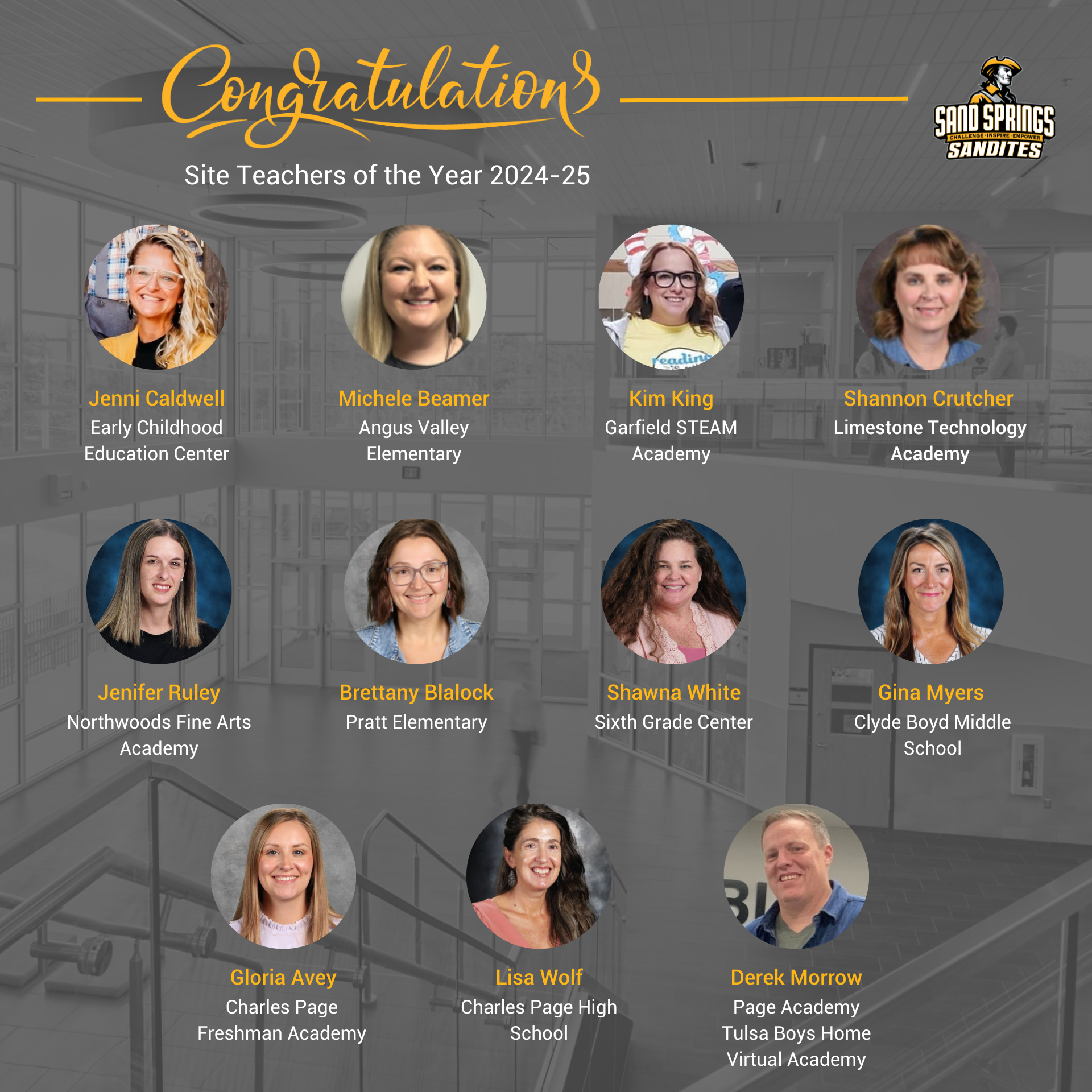Senator David Holt has introduced Senate Bill 316, which would provide a $10,000 raise to all Oklahoma classroom teachers over a four-year period beginning this fall. Holt has further introduced 12 separate measures to provide funding options for the raise.
It is estimated a $10,000 raise for all 42,000 classroom teachers could cost approximately $550 million. Holt’s 12 funding measures cumulatively provide at least $744 million in funding options, with the option of adding another $261 million, bringing to over $1 billion the total defined funding options from which to choose. Holt’s proposals also include other revenue raising measures with undetermined values. Holt also authored an income tax exemption for teachers equivalent to an $1,850 average raise.
None of these proposed funding options increase any existing tax rate and it is believed all of the measures could be passed with simple majorities of the Legislature this legislative session.
Oklahoma teachers have not received a statewide raise of any kind since 2008 and now lag behind the regional average by $5,000 and the national average by $10,000.
“We cannot have the future we want for our state without a solid education system, which we cannot have without great teachers, which we cannot have without competitive pay,” said Holt, R-Oklahoma City. “There are so many things Oklahoma needs to do, but none are as important as this. We need to address this teacher pay issue in the 2017 session, and this legislative package proves that it can be done.”
Last year, Holt also introduced a $10,000 teacher pay raise with funding methods. On the night that State Question 779 failed in November, he publicly pledged that his first legislative proposal for the 2017 session would again be a $10,000 teacher pay raise package.
“As a product of Oklahoma public schools, the son of a retired teacher, and the father of current public school students, I fully understand the urgency of this need,” Holt said.
Senate Bill 316 provides for a $10,000 raise over a four-year period for all of Oklahoma’s approximately 42,000 classroom teachers. For the 2017-2018 school year, teachers would receive a $1,000 raise, followed by three $3,000 raises spread over the ensuing three school years.
“I believe we need to be talking about a $10,000 raise, because we let this fester so long, because we are so far behind, and because it will take years to implement,” Holt said. “Not many private businesses would go a decade without providing even a cost-of-living increase. When you run an operation that way, you leave yourself no choice but to make a bold move or risk failure. Let’s start thinking ahead of the curve instead of playing catch-up.”
“I think any realistic and practical solution to the teacher pay issue must be multi-faceted, must be multi-year, and must require only simple majorities of the Legislature,” Holt said. “I think there’s a lot of room for negotiation within those parameters. The reason I have proposed funding options that far exceed the need is so that this Legislature can pick and choose what elements work best.”
“My package provides a menu of options, within which we could accommodate a smaller pay raise, or distinctions based on seniority, credentials, or subject matter, if that was the will of the body,” Holt said. “I expect there to be many great ideas, and I will support the final product that emerges, as long as we’re making real progress on this issue.”
Here are Holt’s 12 funding options, a brief summary of each, and estimates of the pay raise each measure could provide and when. His comments follow each measure.
SB 330 – This measure captures the first $200 million in new revenue growth and dedicates those dollars to teacher pay raises.
Annual value: $200 million
Equivalent to a raise of: $3,600
Year of first impact: Unknown
“If you had asked our state government five years ago to cut $200 million and redirect it to teacher pay, many would have said it was impossible. But due to the drop in energy prices, that amount and more has already been cut. The hardest part of the task has already been accomplished. This legislation makes a statutory promise that when energy prices rebound, and they always have, the first $200 million in new revenues that come to the state will go to a teacher pay raise. It’s as simple as that, and if history is any guide, those revenues may not be far away.”
SB 331 – This measure repeals Oklahoma’s sales tax exemption on repair, maintenance, delivery and installation of taxable goods, something that is taxed in 24 other states.
Estimated annual value to the state: $59 million
Equivalent to a raise of: $1,075
Year of first impact: 2017
SB 331 could also be expanded to include items that are taxed in at least a dozen states nationally or a majority of surrounding states. These items include oil field services ($31.6 million), construction services ($142 million), utilities ($15 million), information services ($915,000), data processing ($9.2 million), software ($7.5 million), digital goods ($4 million), automotive services ($9.1 million), cable TV ($65.5 million), trailer park stays ($11.9 million), automotive leases ($6.7 million), pet grooming ($3.2 million), carpet cleaning ($3 million), extermination ($2.3 million), aircraft rental ($1.8 million), swimming pool cleaning ($1.6 million), diaper service ($1.3 million), fur storage ($1.1 million), landscaping ($843,000), marina service ($245,000), and telephone answering services ($200,000). These items alone would provide an additional $261 million.
Estimated annual value to the state: $261 million
Equivalent to a raise of: $4,750
Year of first impact: 2017
“The American economy has evolved, and government has to modernize with it. There are a number of items that are taxed in many other states that have gone untaxed in Oklahoma for no reason other than having a good lobbyist or because the nature of the economy has changed. I drafted SB 331 to include the one item already mentioned, but view the bill as a potential vehicle for a much broader modernization of our sales tax code. I am very hopeful that the business community will come to the table and propose an equitable combination of items that spreads the burden fairly, so that our state’s education system can improve. It is also worth noting that this broadening of the sales tax base would tremendously assist police and fire protection in our state as well.”
SB 332 – This measure removes the exemption that allows the state and local governments to abstain from paying sales tax on purchases.
Estimated annual value to the state: $238 million
Equivalent to a raise of: $4,300
Year of first impact: 2017
“This bill will serve to redirect a significant amount of government spending where it needs to go – our education system. And any burden it places on local government could be more than offset by the other measures I have proposed that broaden the sales tax base, as well as the fact that local governments would benefit from the removal of the exemption for purchases by the state.”
SB 333 – This measure ends the applicability of the controversial wind energy tax credit at the end of 2017.
Estimated annual value: $60 million
Equivalent to a raise of: $1,100
Year of first impact: Unknown, but existing credit recipients have ten years to claim their credit
SB 334 – This measure repeals the exemption on sales tax made available to wind energy manufacturers.
Estimated annual value to the state: $5 million
Equivalent to a raise of: $100
Year of first impact: 2017
“These tax benefits have outlived their usefulness and are not as high a priority as teacher pay.”
SB 339 – This measure ends the exemptions for non-appropriated state agencies that have been treated differently from the majority of non-appropriated agencies that pay the state 10 percent of their budget.
Estimated annual value: $87 million
Equivalent to a raise of: $1,550
Year of first impact: 2017
“Paying ten percent of their budget to the state in exchange for the many services provided to them is no great burden to these agencies, but cumulatively, it provides significant funding towards a teacher pay raise. And it finally treats all the non-appropriated agencies equitably.”
SJR 16 and SJR 17 – These two measures work together to create a citizen commission that would spend three years developing a modern school district map that decreases the number of superintendents from 520 to 200 without closing any school building, while spreading the burden equally between rural and urban communities.
Estimated annual value: $50 million
Equivalent to a raise of: $900
Year of first impact: 2023
“Next to teacher pay, the staggering number of superintendents in our state is probably the issue I hear about from constituents the most. And it’s not just a rural issue. There are 24 school districts in the city limits of Oklahoma City. We can be a low tax state or we can be an inefficient state, but we can’t be both. We have to spend money more wisely and get those funds into the classroom. This is a thoughtful and fair way to accomplish a tough but necessary task.”
SB 335 – The state annually provides several hundred million dollars to fund the repair of county roads, even though the state has to maintain state roads as well and there is no state assistance for city roads. This measure lowers that amount by a modest $45 million annually.
Annual value: $45 million
Equivalent to a raise of: $800
Year of first impact: 2017
“Maintaining county roads is something the state should assist with only if we have already addressed the state’s core functions, such as state roads and teacher pay. Even still, my bill does not reduce the amount going to counties by very much, but it does help fund a teacher pay raise.”
SB 336 – This measure would allow the Lottery Commission the flexibility it has requested in setting prize amounts, which it believes will increase total revenues. The increased revenues are captured for teacher pay.
Estimated annual value: Unknown
Equivalent to a raise of: Unknown
Year of first impact: 2019
“The lottery is never going to be the source of revenue for education that it was once presented to be, but I believe with this reform it could do more.”
SB 337 – This measure enacts similar reporting requirements for online retailers that were adopted in Colorado and recently upheld in Federal court.
Estimated annual value: Unknown
Equivalent to a raise of: Unknown
Year of first impact: 2017
“Due to Constitutional restrictions, this is still largely a Federal issue, but the recent court decision in Direct Marketing Association v. Brohl gives Oklahoma an opportunity to potentially recover more revenues that are already due.”
SB 338 – This measure exempts teachers from all Oklahoma income tax obligations.
Equivalent to a raise of: $1,850
Year of first impact: 2018
“This is a real economic value to teachers, but it’s also an incredible marketing tool. Imagine the unique appeal of marketing Oklahoma as a state where we value teachers so much that we completely exempt them from our income tax. I think it could help morale and the growth of the profession.”
Holt’s teacher pay raise proposals can be considered in the 2017 legislative session that begins February 6.










